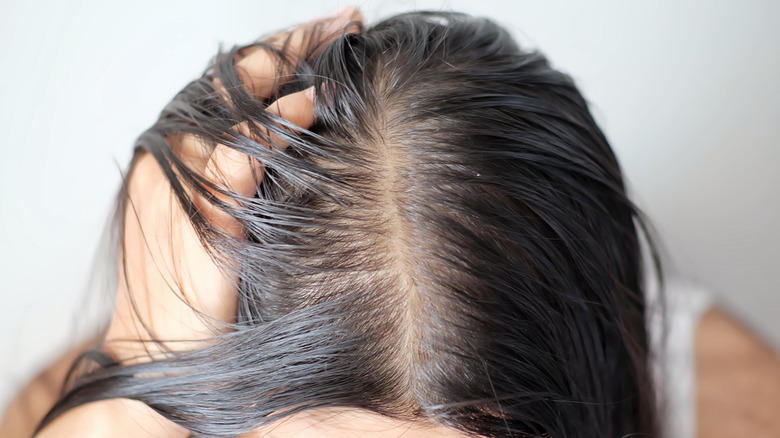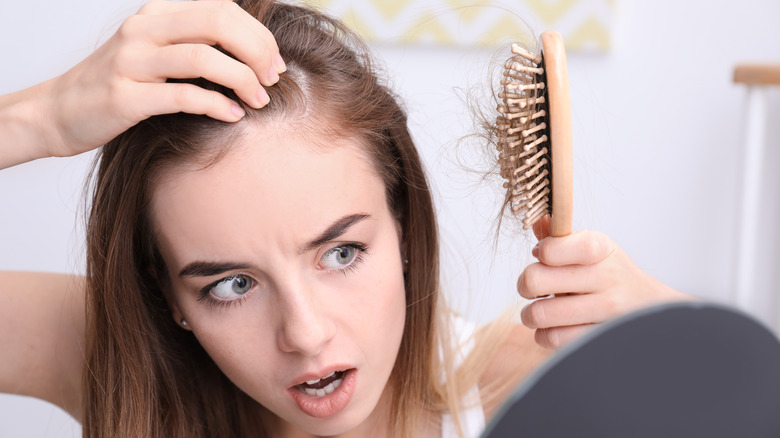What It Really Means When Your Hair Starts Thinning
Your hair can be a source of confidence and comfort, so it's normal to be concerned when your hair starts thinning. When we think of thinning hair or a receding hairline, a lot of us automatically think of men with a bald spot, but hair thinning and hair loss can affect everyone, even women. In fact, one-third of women say that they struggle with hair loss (via Harvard Health Publishing). Since hair loss is a universal problem, it benefits everyone to know more about hair thinning and what it means for your body.
It's normal to have some hair loss on a daily basis as our hair goes through a natural growth cycle, but when your hair starts to exceed what's normal for you, it falls under the category of thinning. Don't worry though, we'll tell you why it's happening and what you can do to keep your hair as healthy as possible.
Why is my hair thinning?
In a normal hair growth cycle, our hair grows and sheds itself regularly in order to keep healthy and allow for new hair growth. Everyone's hair falls out at different rates, so having a baseline for yourself will tell you if your hair is shedding too much and causing it to thin. Visible thinning is also a sign that there is something going on that is causing too much hair loss (via Harvard Health Publishing).
Most people know that hair loss can be hereditary, but there are a lot of other underlying reasons that might be causing your hair to thin, like wearing your hair too tightly, overprocessing your hair, an overabundance of stress, a change in hormones, or nutrient or immune deficiencies (via Healthline).
It's also common for women who are on birth control or pregnant to experience hair thinning and hair loss (via Medical News Today). This comes back to the change in hormone levels that both of these things can cause, but they usually correct themselves when the hormones stabilize.
What can I do to stop my hair from thinning?
If you're able to identify the reason for your hair thinning, it will help you find an appropriate treatment. Perhaps you like to bleach and blowdry your hair a lot. Like we mentioned above, overtreatment of your hair can cause it to thin. In this case, you should probably take a break from heating and color and find some more friendly hair products to use that will give it some new life (via Medical News Today). It's important to be kind to your hair and make sure that it has the right conditions that will allow it to grow like it's supposed to.
If you've identified stress as the likely culprit of your hair thinning, finding a self-care plan that helps reduce the amount of unnecessary stress in your life will help your hair as well as your mind. Stress hormones don't allow hair to grow like it normally would if your body wasn't producing an excess of stress hormones (via Healthline).
You also have the option to talk to your doctor about your hair to work out a plan with them. There may be some medications that you currently take that cause hair loss and thinning, so your doctor will be able to identify the cause of your problems (via Mayo Clinic). For more severe thinning, your doctor can also help you identify ways to prevent losing more hair than you'd like to.



